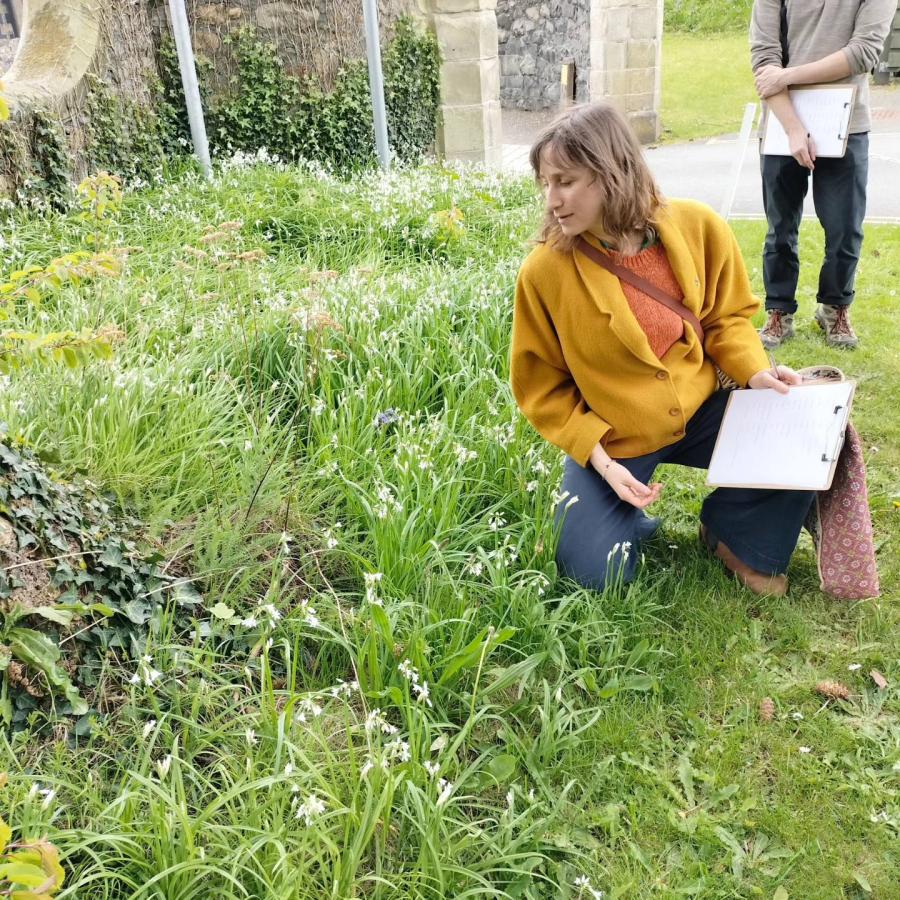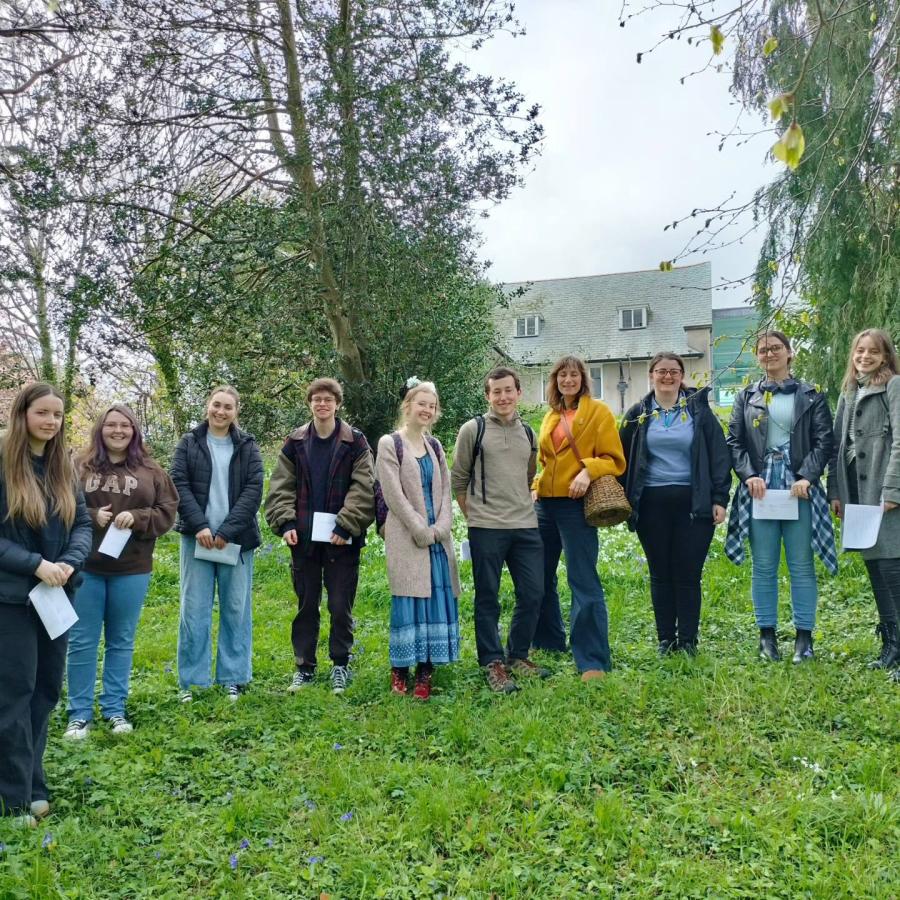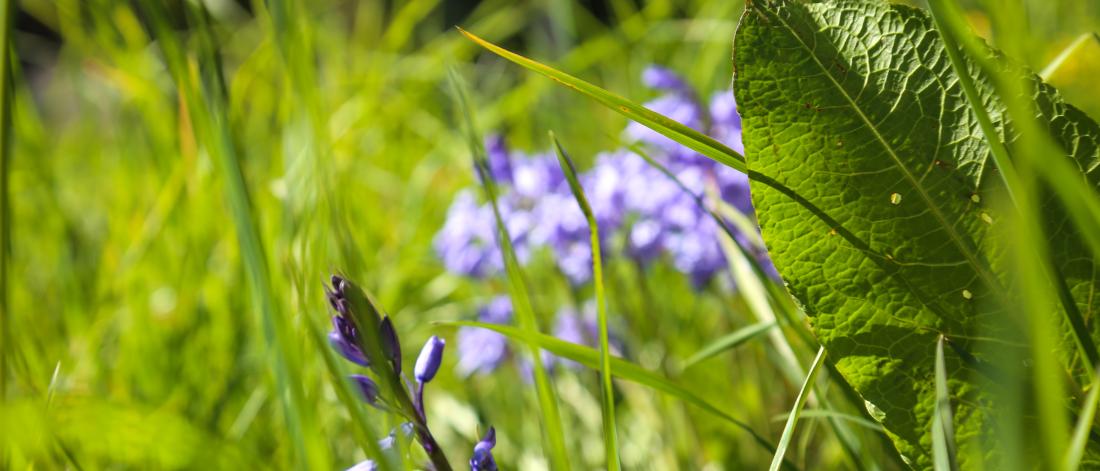Appreciating science and spirituality on Earth Day
To mark Earth Day this year, on Monday, 22 April, students from the Nature and Western Religion module went on a walk with English Creative Writing lecturer, Siân Melangell Dafydd, in order to learn more about the wealth of plants that grow around the University's Main Arts Building.

The module, Nature and Western Religion, gives students the opportunity to study how religion and the exploitation of the natural world have been linked historically, particularly in the western world, and the different ways in which society, now, strives to address the environmental dilemmas.
Scientific research is currently underway and numerous campaigns are taking place, but since the second half of the 20th century, more emphasis has been placed on ecospirituality as a concept: that is, the study of the earth, biology, and the systems of the natural world, in order to understand them, and recognize and appreciate their essence – namely that they are all alive. And that is where the marriage between the ecological and the spiritual can be seen. Therefore, the module explores different aspects of recent ecospirituality, ranging from Deep Ecology, to Dark Green Religion, to various forms of Paganism, including Modern Druidry, Witchcraft, Wicca, and Shamanism.
‘The purpose of this trip with Siân,’ said Dr Gareth Evans-Jones, lecturer in Philosophy and Religion, and coordinator of the Nature and Western Religion module, ‘was to give students the opportunity to learn about the wealth of plants that grow a stone’s throw from the Main Arts Building. There are plants that are beneficial for various ailments, but also some plants that should be avoided. The ecospirituality unit of the module shows how important it is to study nature together with remembering that it is a living entity – and therefore – that we as people, who are part of the natural world, need to be constantly aware of its uniqueness, and our dependence on it.’

Reflecting on the trip, Megan Keen, who is in her second year studying Philosophy, Ethics and Religion, commented, ‘I loved experiencing the little patches of green around Main Arts with a new lens. Siân practised concepts we'd talked about in class, and I found that really helpful with understanding them, as well as joyful to witness.’
Elen Edwards, who is also in her second year, echoed Megan's comments, stating, ‘The trip with Siân was a fascinating one, and learning about the different plants gave me another element of appreciation towards the natural world.’

The hope with holding the trip on Earth Day was that it would show to the students that what they study and discuss in detail in the lecture room is completely relevant to the outside world, and a practical education. And that is what Holly Needham, a student of Philosophy, Ethics and Religion who is in her third year, stated:
‘I think the walk guided by Siân really helped put what we were learning about ecospirituality, among other parts of our module, into context. Getting outside was really important for reminding us how the individual small parts of nature are so important after we'd spent months talking about “nature” as one entity – more like a concept. Being able to focus on the details of different plants, that have been so near to us all along, aided to foster an appreciation of the world around us that we'd been learning about.’
Siân Melangell Dafydd is very experienced in foraging and extremely knowledgeable regarding the natural world, and having her input and outlook on so many aspects was invaluable. And all of these elements were crystallized poignantly by Siân with the message of the important act of saying 'thank you' to every leaf, flower, fruit or vegetable that is taken from the roots of the earth.

